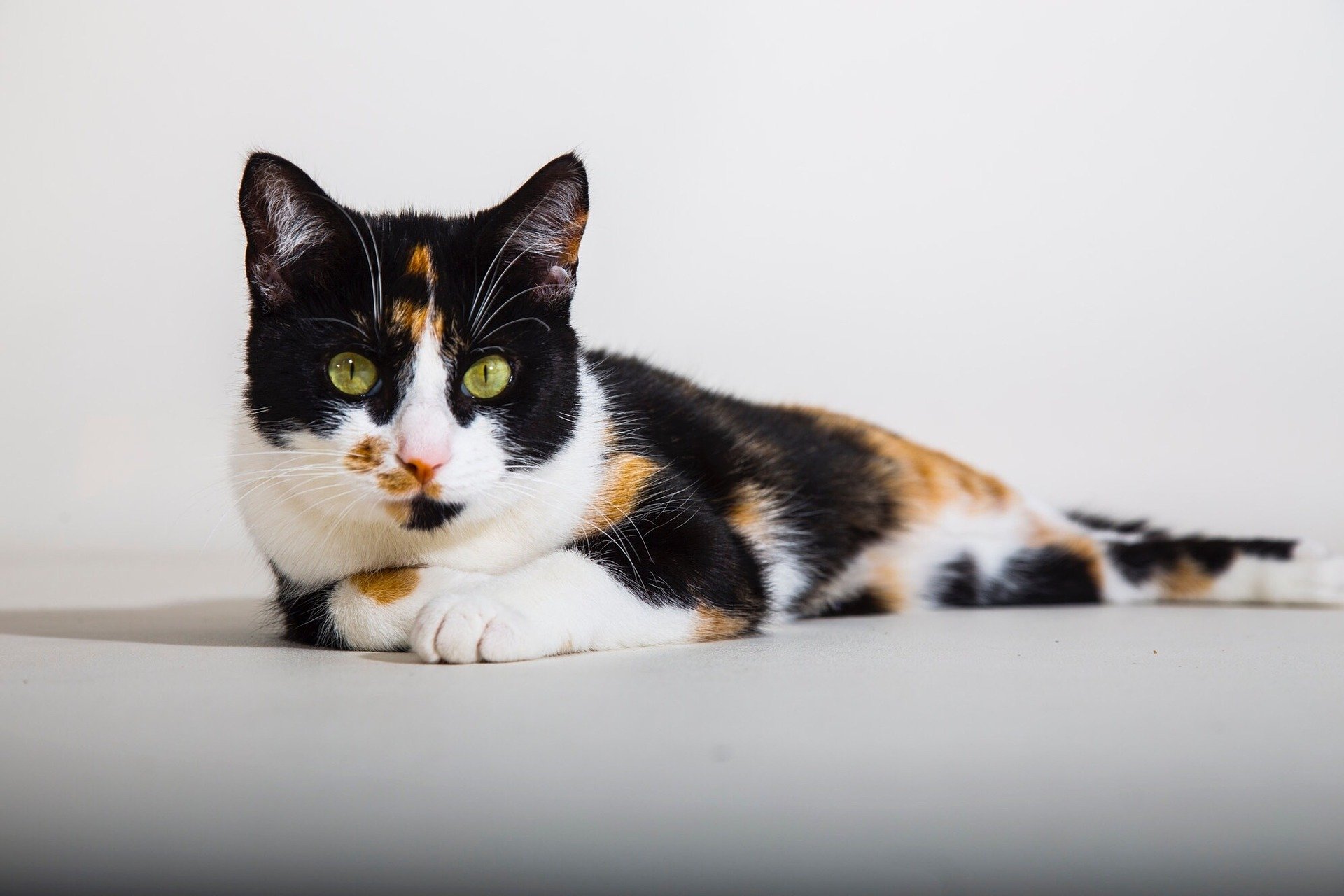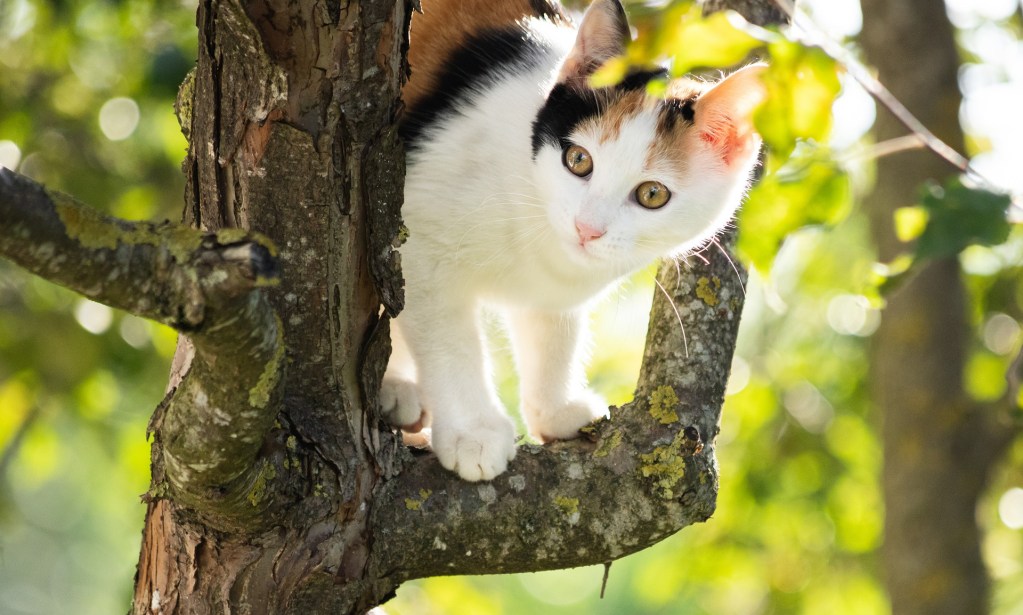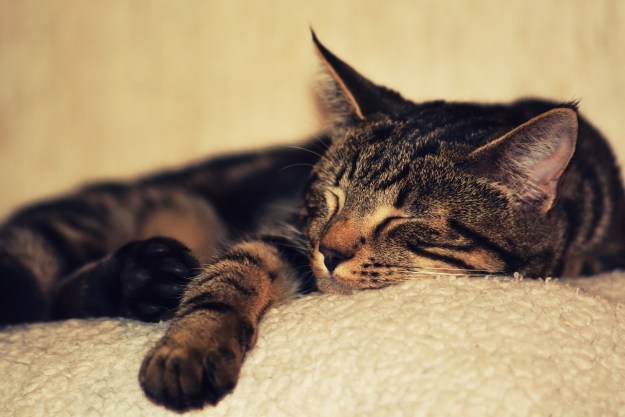Calico cats are beautiful and feature distinctive coats, making them a highly popular choice for many pet parents. Since having a calico, you’ve likely heard all sorts of facts and rumors about the breed, like calicos are always female or they are known for their highly particular attitudes. But when you own a cat, it’s also important to understand any health issues that might come along, given that cat’s breed or coloring. Whether you’re thinking of bringing home a Calico or just want to understand how to better care for the cat that you already have, understanding the ins and outs of these unique cats is helpful and important. There are a few Calico cat health problems you’ll want to be prepared for.

Calico-cat health problems to be aware of
Before we delve into Calico-cat health problems, it’s important to understand that Calico isn’t a breed of cat – it’s a coloring. ASPCA Health Insurance explains that Calicos are known for their tri-color coats, which often incorporate white, orange, and black. Coat variations do exist, such as reddish, cream, and even brown.
Since calicos aren’t a distinct breed, most aren’t affected by health issues specific to being Calicos. Klinefelter’s Syndrome is an exception.
Calico coloring is related to the X chromosome. A cat needs two X chromosomes to be a Calico. Female cats have XX chromosomes, while most males have XY chromosomes, so of course, most Calicos are female.
Some cats are born with an extra X chromosome, so their chromosomes are XXY. These cats are male, but because, like females, they have two X chromosomes, they can also be Calicos. But this somewhat rare extra chromosome can lead to Klinefelter’s Syndrome.
Cats who have Klinefelter’s Syndrome can experience many problems, including cognitive issues, behavioral problems, reduced bone strength that can lead to more broken bones, and a higher body-fat content that can contribute to issues like diabetes and joint pain. Cats with Klinefelter’s Syndrome typically require special care to address these issues, and some may experience shorter lifespans.
How long is the life expectancy of Calico cats?
Since calicos aren’t a breed, your calico cat should have a normal life expectancy, barring issues related to your cat’s breed. ASPCA Pet Health Insurance reports that many cats can live to be 15 years and older, so there’s a chance you can enjoy many years with your cat.

How to care for your Calico cat
Since Calicos really don’t have any specific health issues, your cat will benefit from the same quality care that you’d give to any other cat.
One of the best ways to ensure you’re caring for your cat’s health is to work closely with your veterinarian. Schedule appointments at least once a year so your vet can see your cat in person and monitor her for any potential health issues. This annual wellness appointment provides a chance for your vet to observe and record any changes, and this appointment might help your vet spot emerging health issues early on before they become too severe.
As your cat ages, your vet will recommend more frequent senior appointments. Generally scheduled twice per year, these appointments help your vet to keep a closer eye on your aging pet. There are many health issues that senior cats can develop, and keeping up to date with your cat’s senior appointments can help to identify these issues before they become a large problem.
Maintaining close care with your vet also helps you to carefully monitor your cat’s weight. Obesity in cats is common, and it can lead to other serious health conditions, like joint and heart issues. Your vet can recommend dietary and lifestyle changes to help you stay ahead of your cat’s changing weight, keeping her healthy.
In addition to providing quality vet care, you can help keep yourCalico healthy in how you care for her. Give your cat plenty of exercise and try to fit in daily playtime to keep her active and entertained. Feed quality food and monitor your cat’s weight carefully. Go easy on the treats, feeding just a few a day, and try to feed quality treats that aren’t full of fillers. You can even feed your cat bits of cooked chicken and turkey for an extra-special, yet healthy, treat. All of these small elements add up to top-quality care that can help to maximize your cat’s health.
Editors' Recommendations
- Is your cat obese? 5 ways to help them slim down
- How often should I feed my cat? Here’s what to know about cat feeding schedules
- What you need to know about your cat’s swollen lip – what causes it and how to help it heal
- Cat panting: 5 reasons behind this behavior and what you should do about it
- Wondering how to keep cat warm in cold weather – here are 9 effective ways to help your pet stay toasty



